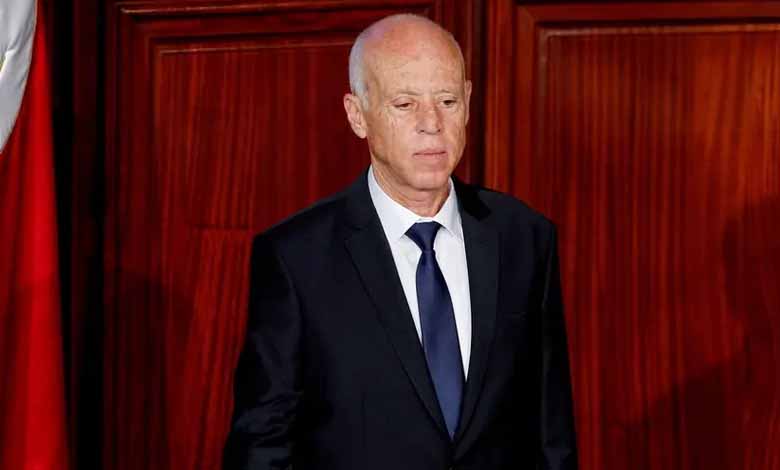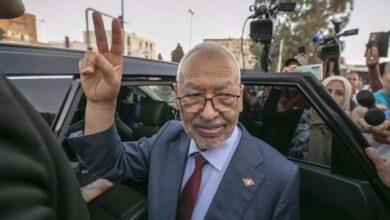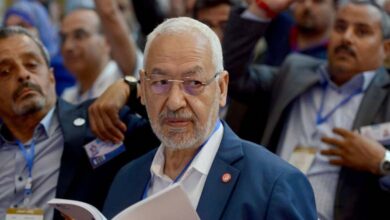Kais Saied denies banning books that criticize his policies

Tunisian President Kais Saied said Tuesday that there is no way to ban any book in Tunisia, stressing that talk about freedoms being threatened in Tunisia is “lies and slander”, in response to accusations that several books critical of his policies were withdrawn during the international book fair last week.
During his visit, on Tuesday, Saied, one of the libraries of Habib Bourguiba Street in the capital Tunis, said in a video published by the Tunisian presidency on its official Facebook page that “the book they say was banned here is sold here”, explaining that what happened during the book fair was that “the book was not on the list of books to be displayed at the exhibition.”
On Friday evening, Tunisian writer and novelist Kamal Riahi’s book “Frankenstein Tunisia” was withdrawn from the Tunis International Book Fair and its publishing house was closed. This was exploited by political forces opposed to accusations of the Tunisian authorities against freedoms.
“The publishing house in question violated the internal law of the fair by displaying an address that was not included in the list of books registered for display and to receive a booth,” the fair’s management said in a statement.
“There is no room for talking about banning any book, and whoever still desires to get banned and dreams of doing so is out of history,” Saied said. “Freedoms will never be threatened because freedom has a people who protect it, the revolution has a people who protect it, and the state has institutions that protect it.”
“Those who question freedoms at home and abroad are either agents or individuals with a profound intellectual coma from which they will not be spared,” he said.
On Tuesday, the Tunisian president spoke about the social situation in Tunisia, during a meeting with Farid Belhadj, vice-president of the World Bank Group for the Middle East and North Africa, at the Carthage Palace, saying that the state cannot abandon its social role.
“Addressing many issues requires today formulating new visions that take into account, in the first place, the role of the state in providing basic human rights, such as health, education, social security, and other services,” Saied said.
“The state must eliminate the social inequalities that occurred during the past decades and which led to the further deepening of the economic and social crisis,” he said.
The Tunisian presidency stated that Saeied/Belhaj’s meeting dealt with “Tunisia’s relations with the World Bank Group and the projects that were funded, in the past, by the International Bank for Reconstruction and Development and the International Development Association, especially in the social field, similar to the construction of educational institutions in general.”
But the unions have been carrying Saied as part of the country’s deepening economic and social crisis by refusing to talk to them. Tunisia is seeking $1.9 billion in funding from the International Monetary Fund to address its growing financial crisis.
“The absence of a dialog of power with social actors will only exacerbate the state of division that Tunisian society is going through,” said UGTT Secretary General Noureddine Taboubi at a labor rally in Tunis to celebrate International Workers’ Day.
The relationship between Ben Ali and Tunisia’s largest labor group has been strained since Taboubi called for a national dialog to save Tunisia.












